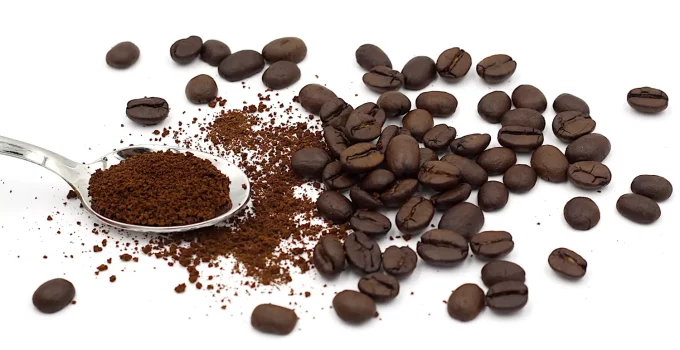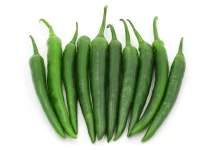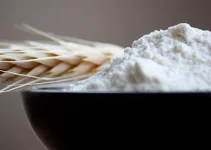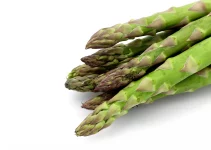Before talking about the perfect coffee extract substitute we should first understand what we’re trying to replace. Once you have that figured out, you’ll know exactly what works as a substitute for coffee extract for your recipes.
The first thing you should be aware of is that, like all extracts, coffee extract contains alcohol. That’s how all extracts are made, whether we’re talking about caramel extract or vanilla extract.
Thus, the easiest definition for coffee extract is that it’s a concentrated coffee flavoring obtained by soaking coffee beans in alcohol for a few weeks.
You can definitely make your own extracts at home from just two ingredients: the ingredient that you’re trying to make an extract from and plain, cheap vodka. We’ll absolutely cover the recipe for coffee extract after talking about the substitutes for it.
Thus, you can choose to make your own extract or you can buy substitutes that work just as well in your recipes.
Table of Contents
My Favorite Coffee Extract Substitutes
1. Instant espresso powder: King Arthur Espresso Powder
This is the perfect coffee extract substitute no matter what we need it for. Instant espresso powder is fabulous in desserts, it can also replace vanilla extract, and it can be used for alcoholic and non-alcoholic drinks.
2. Coffee bakery emulsion: LorAnn Coffee Bakery Emulsion
Just like the extract, coffee bakery emulsion also contains alcohol. But it’s wonderful for all desserts and drinks. Plus, it works in a 1:1 substitution.
3. Coffee liqueur syrup: Torani Coffee Liqueur Flavoring Syrup
The syrup is perfect because, unlike coffee liqueur, it doesn’t contain alcohol. Coffee liqueur syrup can be used to make both desserts and drinks, including the non-alcoholic kind.
6 Perfect Coffee Extract Substitutes
Whether you want to make ice cream, drinks, cocktails or baked goods, my recommendations for coffee extract substitute are perfect for all recipes.
Obviously, since all extracts contain alcohol, I’ll also recommend substitutes for coffee extract that are alcohol-free for those who don’t want alcohol in their recipes.
1. Instant Espresso Powder: One of the Best Coffee Extract Substitutes
In my opinion, the best coffee extract substitute is instant espresso powder. It’s just so good for all kinds of desserts and drinks.
It’s also a non-alcoholic substitute.
And easy to find around the globe.
Instant espresso powder also works as a substitute for vanilla and caramel extract. That alone can tell you just how delicious it is, especially in cacao or chocolate desserts because it makes them taste more chocolatey.
In order to use instant espresso powder in desserts, all you have to do is add it in its powder form or mix with a bit of water when the recipe calls for the extract.
For drinks, mix the espresso powder with a bit of cold water. If you want a concentrated coffee flavor, just add a little water and make a paste that will then go into your drinks. If you want a more diluted flavor, add more water to the espresso powder.
You can make a 1:1 substitution: 1 teaspoon coffee extract = 1 teaspoon instant espresso powder.
2. Coffee + Sugar mix
For me, the easiest substitute to use remains instant espresso powder and the flavoring it brings to recipes is absolutely delicious.
However, we can make a different mix. It’s also non-alcoholic.
Add a freshly brewed cup of coffee to a pot on medium heat.
Add 12 tablespoons of sugar and mix for the sugar to dissolve.
Let the mixture boil until it has thickened.
Once it’s cooled down, it can be used in a 1:1 substitution in desserts and drinks.
Just keep in mind that the extract is not sweet, it is just concentrated coffee flavor. This coffee + sugar is very sweet. You’ll have to decide if it works for your drinks.
3. Coffee Bakery Emulsion
You can buy coffee bakery emulsion to use as a coffee extract substitute.
However, I should warn you that the emulsion also contains alcohol, just as the extract does. So, if you’re looking for a non-alcoholic product, I recommend checking out those easy-to-use alternatives that I’ve mentioned above.
The emulsion promises to have more impact than an extract.
It will add rich coffee taste to cakes, cookies, frostings, sweet breads, ice cream, cocktails, smoothies, shakes, drinks, etc.
You can use it in any recipe calling for coffee and coffee extract.
The ingredients are: water, propylene glycol, natural flavors, and alcohol.
This is a 1:1 substitution: 1 teaspoon emulsion = 1 teaspoon extract.
You can also use it to replace brewed coffee: 1 teaspoon emulsion for every ½ cup of brewed coffee. Increase other liquid by ½ cup to replace the water in the brewed coffee that is replaced with the emulsion.
4. Coffee Liqueur
If you don’t mind the alcohol content, you can definitely use coffee liqueur as a coffee extract substitute.
Coffee liqueur is especially amazing for alcoholic drinks.
You can also drink it ice cold or pour over ice cream for a luxuriously boozy affogato.
Buy a high quality one because it’s worth it.
5. Coffee Liqueur Syrup
If it says syrup on the bottle, then you know that this is the non-alcoholic version of coffee liqueur.
Usually, the ingredients are: sucrose, dextrose, fructose, water, natural flavor.
The syrup is perfect if you want to make non-alcoholic drinks (latte, coffee, tea, smoothies) that taste like coffee.
It can also be used to make desserts.
6. Make Your Own Coffee Extract At Home
As I’ve mentioned, we need just two things for this simple coffee extract recipe:
- coffee beans – crack them just a bit in a mortar and pestle or use a rolling pin to crack the beans
- alcohol (cheap non-flavored vodka is the best)
In a jar with a tight seal, add the cracked coffee beans and cover them with 3-4 times as much alcohol.
You can make as much or as little extract as you want. Just follow this proportion of adding 3-4 times alcohol over the beans and you’re good. You don’t need to measure things precisely, it’s not that kind of recipe.
Place the jar with the seal on in a dark place.
Leave it out of sunlight for 5-6 weeks.
Remember to shake the mix of coffee beans and alcohol once a week and then return it to the cupboard.
After those 5-6 weeks, strain the extract using a cheesecloth. Strain it into a dark bottle, preferably.
Store your extract bottle in a dark cupboard, away from heat and sunlight.
By making your own, you’ll have no need to look for a coffee extract substitute, unless you want some non-alcoholic alternatives.
Coffee extract can also be used as a substitute for vanilla extract for those who don’t like vanilla flavor.
Coffee flavors always enhance chocolate flavor so it will work especially well in desserts made with cacao or chocolate.
Popular recipes with coffee extract and the substitutes you can use
The easiest way to use coffee extract is to add flavoring to coffee, iced coffee, café au lait, Irish coffee, frapes, milkshakes, cocktails.
In the case of all this wide range of drinks, we can use all of the above substitutes that I mentioned.
If you want to keep things simple, dissolve instant espresso powder in a bit of water and add that cream to your drinks. You can add as much or as little as you want, depending on how much coffee flavor you want.
Replace 1 teaspoon espresso powder for 1 teaspoon coffee extract.
You can also use coffee liqueur if you don’t mind their alcoholic content. Or use the non-alcoholic version, coffee liqueur syrup.
We also use coffee extract to enhance chocolate recipes: cakes, brownies, custard tart, ice cream, coffee-flavored whipped cream,
In the case of these recipes, you can once again use instant espresso powder as a coffee extract substitute, add it when it’s written in the recipe and you can even add it in its powder form, without mixing it with water.
If you’re interested, you can find many more recipes here.
Is coffee extract the same as coffee?
The extract is obtained by leaving coffee beans in alcohol for 1-2 months. It is used for adding coffee flavoring to desserts and drinks, just like we use vanilla or caramel extracts or any other extracts in general.
Coffee is made by brewing ground coffee.
As you can see, these two are completely different. We drink coffee daily, we use coffee extract for a wide variety of recipes. Or we use a coffee extract substitute, like the ones I recommended above.







